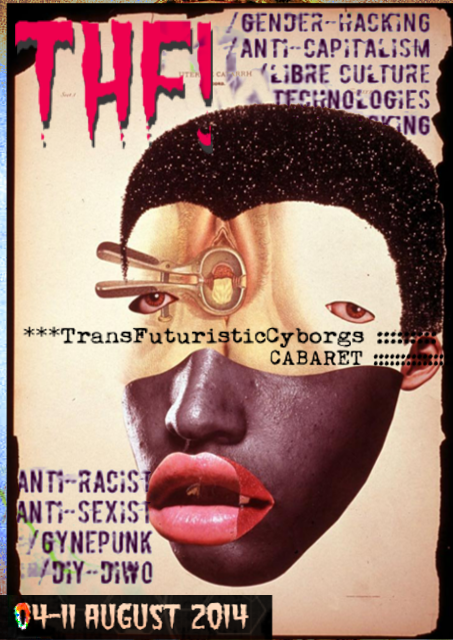The Internet we know today has become a place where the (digital) targeting of feminist, queer and transgendered individuals abound; where cyberspace has been transformed into a consumption heaven and a space of constant economic and state surveillance; where dissident voices and actions are being controlled and tracked, and where algorithmic governmentality governs. In trying to think about how (cyber) feminism can be active on and about the Internet and digital technologies to challenge the current state of affair, I wonder the extent to which the materiality of cyberspace can help shed light on with this endeavor.
Highlighting the materiality of cyberspace helps to connect the dots between the seemingly immaterial digital age and its material impact on the environment (through the constant extraction of resources), the social (our relational networks are being transformed into commodities), the labor (the exploitative labor conditions in the factories that make our favorite gadgets), the governance (who governs the Internet?), to name a few. The New Spirit of (digital) Capitalism seems to be embedded into the design of technologies, and search algorithms are aligning their socio, economic, legal and political values into their seemingly “neutral” mathematical formula. Considering the grim situation of the materiality of cyberspace, how can we react and resist as (cyber) feminist without falling into dystopia? Can we try to mobilize (feminist) bottom-up agency outside of capitalist, patriarchal and racist frameworks? Can autonomous (infra)structures whether through code, free software, free hardware, design, space, convergences, etc. attempt to enable forms of separation and/or agencies from oppressive system of values? Might those (infra)structures support the self-valorization of those who take part in it?
In their new book entitled To Our Friends, the Invisible Committee calls on all activists to become politicized hackers while asking them to go and think beyond civil liberties. Their call to activists is about equipping themselves with the skills and knowledge needed to understand the ideology behind the tools we use on a day today basis (the financialization of our (cyber)lives) with the ultimate goal of social justice and transformation. Feminists concerned with these questions are also making this call loud and clear. Becoming a feminist hacker, maker or geek is not only about learning how to code, how to administer systems, it is also about being curious on how things are made, and learning to challenge and question how technology works and how technology impacts our lives and the lives of others.
To push our reflection further, it is worth looking back at the Luddites movement, a workers movement active in the 19th century England. The Luddites broke machines that they perceived would destroy their craftsmanship, and force them into unemployment and destitution. They resisted not all forms of technologies, but rather the technologies that they deemed harmful and against the greater good.
Therefore, as a way to resist the forces at play today and its deleterious impact on the social, the labor, the environment, can we think of investing our time and energy in developing and using autonomous (infra)structures that aim at challenging systems of oppression? Would that be a strong and pro-active response of how (cyber) feminism can be active on and about technologies?
